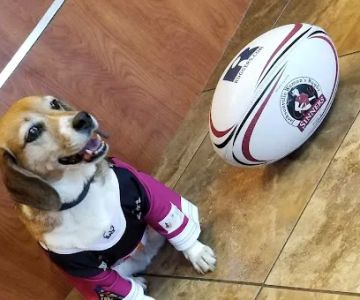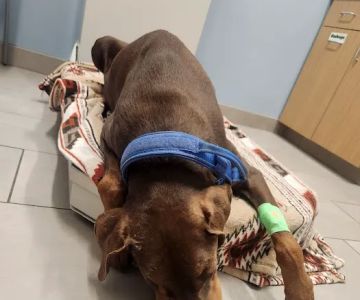Do You Address a Veterinarian as Doctor? Understanding the Respectful Titles for Vets
- Understanding Veterinarian Titles
- Doctor vs. Veterinarian: What's the Difference?
- Cultural Differences in Addressing Vets
- Proper Etiquette in Veterinary Appointments
- Real-Life Examples of Addressing Veterinarians
Understanding Veterinarian Titles
As someone who has always been passionate about animals, I’ve spent a lot of time at veterinary clinics, taking my pets for check-ups and treatments. One thing I’ve noticed, and that many people seem unsure about, is how to address a veterinarian properly. Do you call them “Doctor”? After all, veterinarians have earned extensive education and training, just like medical doctors, but does that mean they should be referred to as “Doctor” in the same way?
In this article, I’ll explore the respectful titles for veterinarians, why they matter, and how you can address your veterinarian during appointments. I’ve learned over time that understanding the appropriate etiquette can make a big difference in how we interact with these dedicated professionals.
Doctor vs. Veterinarian: What's the Difference?
Before diving into the specifics of how to address a veterinarian, it’s important to understand the differences between a medical doctor and a veterinarian. While both are highly trained professionals who care for living beings, the nature of their education and practice differs.
Veterinary Education and Qualifications
Veterinarians undergo a similar level of training to medical doctors, but instead of focusing on human health, they specialize in the health and care of animals. A veterinarian typically holds a Doctor of Veterinary Medicine (DVM) degree, which requires extensive studies in animal biology, anatomy, surgery, and pharmacology. This is comparable to the medical school training that a human doctor undergoes. In fact, many people, myself included, often refer to veterinarians as “Doctor” out of respect for their rigorous education.
Should a Veterinarian Be Addressed as Doctor?
Given their qualifications and the fact that they hold a doctoral degree, it is entirely appropriate to address a veterinarian as “Doctor.” This is especially true in formal settings or when you are interacting with them in a professional capacity. For instance, when scheduling an appointment or discussing your pet’s health, it’s polite and respectful to use “Doctor” followed by their last name, just as you would with a human medical doctor.
Cultural Differences in Addressing Vets
One of the interesting things I’ve noticed in my experience with veterinarians is that the title “Doctor” isn’t always used uniformly around the world. In some cultures or regions, it may be more common to simply call veterinarians by their first name, especially if they work in more relaxed or small-town settings. In contrast, in larger urban centers or more formal practices, you’re more likely to encounter the “Doctor” title in everyday interactions.
From my personal experience, I’ve found that addressing a veterinarian as “Doctor” is a safe and respectful choice in most contexts, but it’s always a good idea to follow the lead of the clinic or the veterinarian themselves. Some vets may prefer to be addressed by their first name, especially if you’ve been a regular patient for a while. It's all about ensuring that the interaction remains respectful and professional.
Proper Etiquette in Veterinary Appointments
When you’re at the vet with your pet, proper etiquette is important for making sure the appointment goes smoothly. While addressing the veterinarian respectfully is one aspect of this, there are other ways you can show that you value their expertise and professionalism.
Listening and Communicating Clearly
One of the key aspects of proper etiquette is effective communication. I’ve learned that when I clearly explain my pet’s symptoms and listen carefully to the veterinarian’s advice, it leads to a better treatment plan and understanding of what’s going on. Vets appreciate when their clients are well-prepared and responsive to their guidance.
Respecting Their Time
Veterinarians often have busy schedules, so it’s also important to be punctual and organized. Showing up on time for your appointment and bringing all relevant information (like your pet’s health history or any questions) will make the experience more efficient for both you and the veterinarian. As I’ve experienced, respecting their time shows professionalism and consideration for their workload.
Real-Life Examples of Addressing Veterinarians
To put things into perspective, let me share a story of my first visit to a new veterinary clinic. I wasn’t sure whether I should address the veterinarian by their first name or as “Doctor,” so I decided to err on the side of formality. I greeted Dr. Miller with a polite “Good afternoon, Dr. Miller,” and immediately noticed how professional and welcoming they were. Throughout the appointment, the veterinarian remained approachable and friendly, but I continued using “Doctor” out of respect for their training. In the end, the whole experience was professional and warm, and I felt confident in the care my pet was receiving.
After several visits, I eventually asked Dr. Miller if they preferred being called “Doctor” or just by their first name, and they were perfectly fine with either. However, I chose to keep addressing them as “Doctor” because I felt it conveyed the respect I have for their expertise and role in my pet’s health.
Conclusion
To sum up, addressing a veterinarian as “Doctor” is the most respectful and appropriate choice, considering their level of education and expertise. Whether you’re visiting for a routine check-up or an emergency, using the title “Doctor” followed by their last name shows professionalism and respect for the work they do. Of course, as you become familiar with your veterinarian, you may find that they prefer a more informal address, but starting with “Doctor” ensures that you’re showing the right amount of respect from the very beginning.











